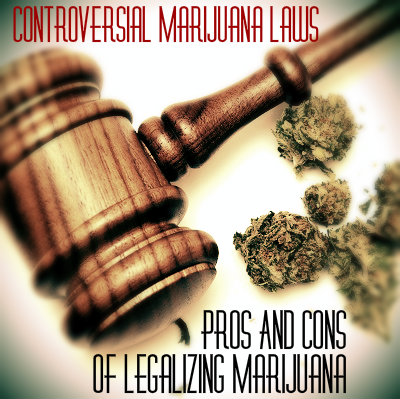17 Oct / 2014
The Benefits Of A Sober Living House
Sober living refers not just to being sober, but also to a safe house in which to live soon after receiving treatment for addiction. A sober living house was once called a halfway house—a halfway stop between rehab and being on your own again. The idea of a sober living house is that you live in a home that gives you some level of support and treatment for your addiction while letting you work toward greater independence. You live surrounded by others in the same situation and receive the benefits of mutual support. If you are getting treatment for addiction, consider the benefits of a stay in a sober living house.
What Is A Sober Living House?
 A sober living house is a sober environment in which recovering addicts live after receiving some type of intensive treatment. Patients may live in a sober house for up to a year. Most people come to stay in one after going through a 30- to 90-day rehab treatment program.
A sober living house is a sober environment in which recovering addicts live after receiving some type of intensive treatment. Patients may live in a sober house for up to a year. Most people come to stay in one after going through a 30- to 90-day rehab treatment program.
The sober living house provides an environment that is completely free of drugs and alcohol. Most do not include formal treatment, but there may be a therapist on call or regular 12-Step meetings. The level of structure varies, but some sober living houses include skill-building lessons, such as learning to balance a budget, looking for a job and maintaining good social skills.
The Social Support Of Sober Living
The drug- and alcohol-free environment is an obvious benefit of sober living. Rules in these houses are strict, which means that residents can count on not being near drugs or alcohol. A less obvious benefit is that of social support. Research tells us that social factors are a crucial element of successful addiction recovery. Recovering addicts that have a strong social support system are more likely to be successful over the long term.
In a sober living house you have a built-in social network. Your roommates are also in recovery and you have the opportunity to support and help each other stay sober. Many houses include support group meetings, but even without them, you are surrounded by people who have the same goals and needs that you do. Those who are further along in recovery often support new residents.
Sober Living Provides A Transition Into The Real World
Going directly from rehab to living back at home, going to work and socializing with family and old friends can be a rocky transition to make. It can be abrupt and unforgiving. One day you are fully supported in a safe environment, and the next you are expected to go back to normal life, except without abusing substances. This is where many addicts end up relapsing.
A great benefit of a sober living house is that you get a smoother transition back into the real world. The sober living house is less structured and less secure than your rehab facility, but it still provides some safeguards that you wouldn’t have at home. In a sober living house you can slowly learn how to re-enter society as a sober person. You can take the time to develop new skills and to find out who you are sober.
A sober living house is a great place to spend your early recovery. The bumpy road from rehab to home again can be made much smoother by the safety and security you can find in one of these homes. If you are recovering from an addiction, consider spending some time in a sober living facility.
16 Oct / 2014
How To Prevent And Correct Video Game Addiction
What do you do if you have a child, most likely a son, who plays Internet or video games obsessively? How do you know if he has gone too far and spends too much time gaming? And how do you get him to cut back? Whether an addiction to gaming is diagnostically real is up for debate by the experts, but the fact remains that people can become obsessed with gaming to the detriment of other aspects of their lives. It’s important for parents to monitor a child’s gaming and set limits if it gets out of hand.
Gaming Addiction?
 The Diagnostic and Statistical Manual of Mental Disorders is the number one resource for diagnosing any kind of mental disorder or condition, including addiction. In the latest edition, DSM-5, experts decided not to include Internet gaming disorder as a diagnosable condition. They did, however, list it in a section for potential disorders requiring further research. This means that there is a possibility that Internet gaming and video gaming can be problematic for individuals and can approach addictive-like levels.
The Diagnostic and Statistical Manual of Mental Disorders is the number one resource for diagnosing any kind of mental disorder or condition, including addiction. In the latest edition, DSM-5, experts decided not to include Internet gaming disorder as a diagnosable condition. They did, however, list it in a section for potential disorders requiring further research. This means that there is a possibility that Internet gaming and video gaming can be problematic for individuals and can approach addictive-like levels.
DSM-5 describes gaming disorder as characterized by compulsive playing, avoiding other activities and interests in favor of gaming, and distress or impairment as a result of these behaviors. Some obsessive gamers even experience withdrawal-like symptoms when their games are taken away. It turns out that this issue of compulsive gaming is a real problem with some kids. Research has found that among boys who game, 12 percent fit the definition of addicted, while 8 percent of girls do.
Preventing And Correcting Obsessive Gaming
Whether or not this obsessive level of gaming gets labeled as an addiction is largely unimportant. As long as experts recognize that some young people truly have a problem with gaming and have the resources to help them, labeling doesn’t matter. If you are the parent of a child who enjoys gaming, be aware of the issue and be prepared to act if you think your child has a problem.
Signs Of A Problem With Gaming
First it is important to recognize the signs of a problem. Your child may be at risk of a gaming addiction if he can’t seem to stop playing, even when you repeatedly ask him to stop. He may also lie about how much he plays games and may start to lose interest in other activities he used to enjoy. Others signs of a problem are slipping grades or being tired from gaming too much. If your child is already showing some of these signs and you can’t get him to stop, it may be time to get some professional help. A good therapist, recommended by your pediatrician, will be able to help get you started.
If your child is not yet showing signs of a problem, but you’re still worried, there are some steps you can take to avoid a gaming addiction. Start by setting limits. Your child should not have free reign to play games whenever and for as long as he wants. Set aside a certain time during the day and do not allow gaming at any other time. Another great way to get kids off of games and devices in general is to engage in family activities unrelated to technology. Take a hike together, go to the park, go to the pool or take a camping trip and outlaw devices for the duration.
It is also important to talk to your child about your concerns. Explain how it is easy to get obsessed with certain activities, like gaming, and how that can be bad for you. Being open with your child is a great way to foster trust and communication and to help him understand why you set limits.
Read This Post To Find Out If Your Child Is Addicted To Gaming, The Signs And What To Do
15 Oct / 2014
Should I Try Medications For Alcoholism?
There has long been a prevalent philosophy of addiction treatment that includes total abstinence. Of course it makes sense for an alcoholic to abstain totally from drinking, but some also say you should avoid drugs wherever you can, including medications. Ideas are changing, though, thanks to research.
We now know much more about addiction and its effect on the brain than ever before. Researchers have developed medications that may be able to help you recover more effectively and stay sober more easily. Not all agree that drugs are the way to go, so what should you do?
What To Do When Deciding Whether Or Not To Try Medications For Alcoholism:
Read Up On Drugs For Treating Alcoholism
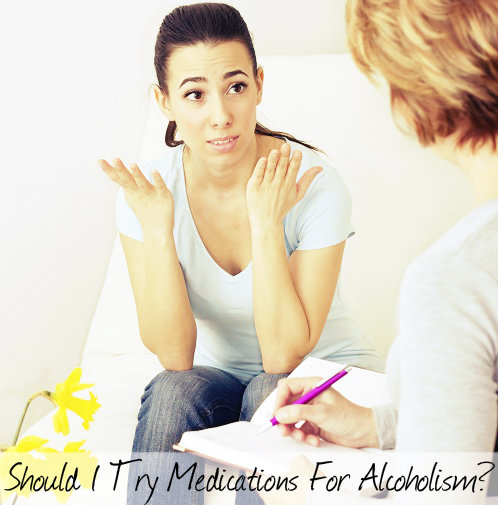 The first and best thing you can do when it comes to making a choice about medications is to read and learn. Knowledge is power, so read up on the drugs available to treat alcoholism and learn more about each one. Armed with the information, you can make a better choice and have a more intelligent discussion with your doctor and therapist.
The first and best thing you can do when it comes to making a choice about medications is to read and learn. Knowledge is power, so read up on the drugs available to treat alcoholism and learn more about each one. Armed with the information, you can make a better choice and have a more intelligent discussion with your doctor and therapist.
3 Common Alcoholism Treatment Drugs
Here is some introductory information to get you started learning about three of the most common drugs:
- Antabuse – The generic name for this drug is disulfram, and it has been around for decades helping alcoholics stop drinking. If you take the medication as directed and try to drink, you will get very sick. Symptoms are short-lived and include nausea, vomiting and headaches.
- Naltrexone – Naltrexone blocks the high, or pleasant feeling, that you normally get when drinking alcohol. If you take it as directed, you will have no reason to drink.
- Acamprosate – This is one of the newer drugs on the market for alcoholics and it works by helping you to resist the urge to relapse. You are only supposed to take this medication after you have given up drinking. It reduces some of the long-term withdrawal symptoms that would make you turn back to drinking.
Discuss Treatment Medications With Your Doctor And Therapist
You should always discuss your treatment plans with those experts you trust to your care. Of course your doctor will be the one to prescribe a medication, or your psychiatrist if you have one. Discuss the pros and cons with both your prescribing doctor and your therapist or drug counselor. These professionals can help you make an informed decision about whether alcoholism medications are right for you.
The most effective addiction treatment plan is one that is tailored to your specific needs. You, along with the professionals who know you and your history, are best qualified to develop a plan, whether or not it includes medications.
Never Rely Solely On Medication To Overcome Your Addiction
If you decide to give one or more of these medications a try, keep in mind that none of them is designed to be used alone. All are approved to treat alcoholism in conjunction with psychosocial therapy. This means that you need to use other treatment methods, including behavioral therapy, psychotherapy and support groups together with drugs for effectiveness. Drugs alone are not the answer because there is no simple cure for alcoholism or any other type of addiction.
The ultimate choice as to whether or not you try drugs to treat your addiction is up to you. In order to make the best choice for yourself and your future, make sure you are educated about the options, discuss with your medical and counseling professionals and make medications just one part of an overall treatment plan. If you follow these steps and make the commitment to stick to your plan, you stand every chance of a successful recovery.
See Other Drug And Alcohol Rehab FAQ’s
14 Oct / 2014
Are You Addicted To Love?
Process addictions, also known as behavioral addictions, don’t always get the same kind of attention as chemical dependencies, but they can be just as serious. Love addiction, which should not be confused with sex addiction, can prevent you from having normal relationships or from ever being satisfied with one. If you are constantly obsessing over one person, a fantasy of your true love or a fantasy relationship, you could be suffering from a love addiction. It’s time to break the cycle.
What Is Love Addiction?
Love addiction is a process addiction. This means that instead of compulsively using a drug or alcohol, you are addicted to a behavior, a feeling or a person. In the case of love addiction you may be addicted to the feelings of infatuation or early love and go through a string of short-term relationships.
 Or you might be addicted to your partner and the way he makes you feel, refusing to break it off even if the relationship takes an unhealthy turn. It could even be platonic love that has you hooked. The bottom line is that you obsess over it. The feelings you get from love, infatuation and fantasy take over your life.
Or you might be addicted to your partner and the way he makes you feel, refusing to break it off even if the relationship takes an unhealthy turn. It could even be platonic love that has you hooked. The bottom line is that you obsess over it. The feelings you get from love, infatuation and fantasy take over your life.
At the root of a love addiction is the idea that another person, either real or imagined, can make your life perfect and love you unconditionally. This idea may result from a past history of being abandoned or not being loved enough. It may be that your parents didn’t meet your needs for love and affection. Now, as an adult, you have low self-esteem and look for validation from an outside source when really you should be your own validation.
How Do I Get Over A Love Addiction?
Love addiction is unhealthy because it means that you place unrealistic expectations on others, you fail to take care of yourself and you fail to develop a healthy relationship of mutual respect and love. If you recognize the signs of love addiction in your actions, thoughts and feelings, it’s time to take action and turn things around. Only then will you learn to love yourself and give yourself the chance to have a real relationship.
Steps To Get Over Love Addiction
Here are some steps to take:
- Stop, analyze and assess – Take a step back from your relationships and really think about your behaviors. Make a list of the ways in which you behave inappropriately in your relationships. Consider how you feel and how you make your partner feel. Also think about past relationships and look for common patterns.
- Take responsibility for your own happiness – As a love addict you rely on someone else to make you happy. You think that you need a perfect partner to make your life complete. This is a mistake. You are the only one who can make you happy. Accept that now and begin to act on this truth.
- Consider therapy – There is a good chance that your obsession with love is related to your past. Working with a therapist can help you come to terms with past relationships and how they have impacted you. Sometimes it takes the assistance of a professional to really heal.
- Be prepared for imperfection – As you feel ready to start up a new relationship be ready for the fact that it won’t be perfect. You can chase a perfect partner your whole life, but you’ll never find him. Prepare yourself to fall in love with someone who is imperfect, but perfect for you.
Breaking the habit of love addiction isn’t easy, but it will make your life infinitely better. Only when you begin to accept and love yourself, and reject the idea of a perfect fantasy partner, will you be ready to enjoy real love.
13 Oct / 2014
Are You An Enabler?
Behind many addicts you’ll find enablers. An enabler can be a parent, a spouse or even a child, and usually her intentions are good. The problem is that loving an addict, supporting him and empowering him can often turn into enabling. When you enable the addict in your life you are only making the problem worse and preventing him from getting the help he really needs. So how do you know if you are helping or hurting?
What Is Enabling?
Enabling means taking away or covering up the consequences of your loved one’s addiction. Consequences are powerful motivators. When an addict destroys his relationships, loses his job or spends all his money on drugs he is forced to face the truth about his problem with drugs or alcohol. If you take actions to shield him from these consequences, he need not face the truth and he will likely keep doing what he is doing. You are enabling him.
Put this way it sounds pretty straightforward. When you’re in the thick of it, though, it can be tough to know if you are enabling your addict or helping him. You should help your loved one. You should empower him to get help for himself. Helping an addict doesn’t always mean tough love, but there can be a fine line between caring and enabling.
Signs You Are An Enabler
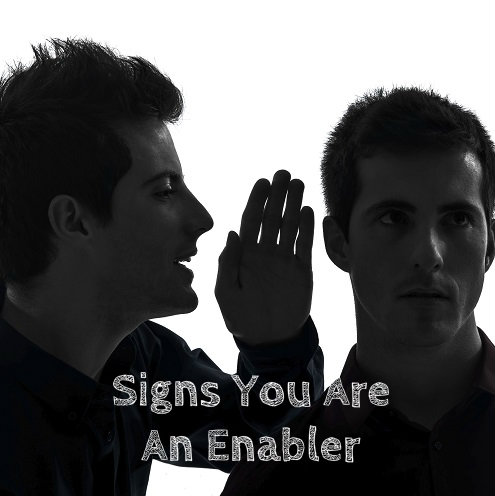 Here are some surefire signs that you are an enabler:
Here are some surefire signs that you are an enabler:
- You make excuses or lie – You cover up or gloss over bad things that your loved one is doing and make excuses to other people. For instance, you might explain away his embarrassing bender at a party by telling everyone that he was sick and the alcohol interacted badly with his cold medicine.
- You take on his responsibilities – For an addict, everyday responsibilities are usually the first thing to go south. If you pick up the slack by picking up the kids from school, doing his chores, taking care of his aging mother or anything else he is supposed to do, you are not letting him feel the consequences of his neglect.
- You put the blame for his problems on anyone but him – Addicts are great at assigning blame to third parties. It’s part of denial. You may add to the problem by encouraging this or telling him that he’s right. You may even blame yourself. The truth is that he makes his own decisions and he needs to realize that.
- You take care of him financially – Addiction costs money. Do you give him more money when he runs out? Do you pay the bills or legal fees? Helping him financially may seem unconnected to his addiction, but it isn’t.
- You avoid addressing the problem out of fear – If you are afraid to face the problem of your loved one’s addiction because you are afraid of a fight or that he will leave you, you are enabling.
How To Stop Enabling And Start Helping
If you recognize the enabler in your habits, it’s time to stop. Start with a conversation about the problem. Stop ignoring it. Tell your loved ones that things will change from now on. You will no longer take care of his responsibilities. You will no longer give him money. What you will do is support and love him. Offer to be there as he gets help or goes to rehab. Tell him and show him that you are there to help and support, but that he needs to get help. Once he starts to really feel the consequences of his addiction he will start to realize the extent of his problem.
Find Out If Are You The ‘Chief Enabler’ For An Addict – And What To Do About It
10 Oct / 2014
Jail Is Not A Form Of Rehab
For decades, the war on drugs in the U.S. has taken a hardline strategy. Addicts are treated like criminals rather than people with a serious illness. As attitudes begin to shift and research tells us more about the disease of addiction, many hope that drug policies will also change. The tough love idea that prison can cure an addict is no longer working in the rehab vs. jail debate.
Punishment As Rehabilitation
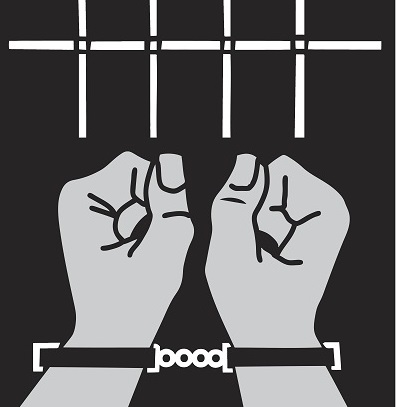 A dominant philosophy of treatment for drug addiction has been one of punishment. Society has long viewed addicts as people with moral failings and natural weaknesses. The idea has been that in order to correct their poor choices, tough love and punishment are needed.
A dominant philosophy of treatment for drug addiction has been one of punishment. Society has long viewed addicts as people with moral failings and natural weaknesses. The idea has been that in order to correct their poor choices, tough love and punishment are needed.
Although the general attitude toward addiction as a disease to be treated with medical techniques has been growing, many addicts end up in prison. For too many addicts, a stint in prison, or more than one, is the only type of rehab they receive.
Prison exists for several reasons. The main point of incarceration is to punish. It also exists to remove offenders from society. Finally, prison is supposed to rehabilitate inmates, even those that are not addicts. The time spent in jail is to be productive and to prepare inmates for re-entry into society as contributing members. Unfortunately, jails and prisons have largely failed at this last goal. How can they be expected to be facilities that will successfully treat drug addicts?
True Drug Rehabilitation
Drug rehabilitation statistics tell us that the punishment model simply doesn’t work, and neither does using jail as a form of drug rehab. Real rehab means using a combination of evidence-based techniques that are individualized for each patient. Trained professionals should lead the techniques. Therapy, counseling, group support and medications where appropriate are the tools of drug and alcohol addiction rehab. Evidence from modern research tells us that these are the methods that work, not punishment.
True drug rehab can take many different forms. The important thing is that it should conform to the needs of an individual. Rehab can mean spending weeks to months working intensively in a residential facility. It can also mean working in therapy groups while still living at home, or simply attending 12-Step support groups and using self-help techniques to stay sober.
The most important factors, as demonstrated by drug rehab success rates, are that rehab methods are based on evidence and that the overall program is individualized. When an addict receives this type of treatment from caring professionals, he stands a real chance of getting well again. Jail is no place for an addict. It simply doesn’t work as rehab and it only increases the odds of an addict getting in trouble with the law again.
09 Oct / 2014
Why You Need To Ditch Old Friends After Rehab
Peer pressure is a powerful force. The need to conform to the crowd and go along with what seems normal is a natural part of being human. We know it from experience and we know it from scientific research.
If you have worked hard to get through rehab, get sober and are determined to stay sober, you have to make important life changes. One of those changes is getting rid of old friends.
In fact, having a strong support group is crucial to your recovery. But, if any one of your old friends is still using or doesn’t fully support your sobriety, it’s time to say goodbye.
Reasons To Cut Old Friends Out Of Your Life After Rehab
Here are the best reasons to make the difficult choice to cut old friends out of your life:
- Old friends will try to tempt you with false memories of happier times. The truth is that while you were using, your life was in the toilet. Some of your old friends, however, will try to convince you that life was better then, that you had more fun and were fun to be around. The reality is that these friends don’t want to live in the toilet alone. They want someone to justify and validate their lifestyles. Don’t listen. They are wrong and you are better off sober.
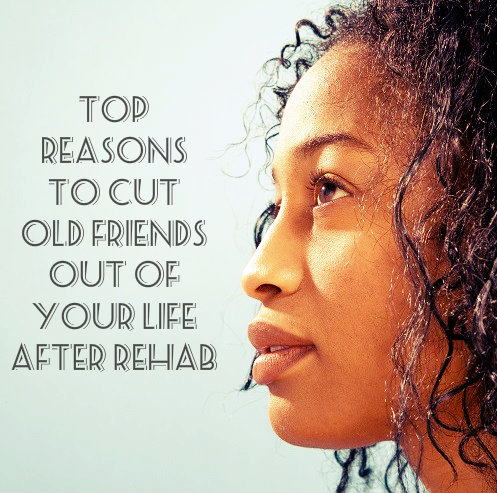 Putting yourself in high-risk situations will cause you to relapse. It just makes good sense, but research has also proven this fact. Recovering addicts are far more likely to relapse if put into risky situations. These include being around people who are using drugs or alcohol. Facts don’t lie. If you surround yourself by people who use, you are more likely to use as well and to undo all the hard work you put into your recovery.
Putting yourself in high-risk situations will cause you to relapse. It just makes good sense, but research has also proven this fact. Recovering addicts are far more likely to relapse if put into risky situations. These include being around people who are using drugs or alcohol. Facts don’t lie. If you surround yourself by people who use, you are more likely to use as well and to undo all the hard work you put into your recovery.
- Your old friends do not have your best interests at heart. If you have an old friend who is still using, his daily motivations for nearly everything he does revolve around his addiction. Every choice he makes, and how he interacts with people, is related to his need to drink or use drugs. This means that, even if he sounds like he is supporting you and cares about you, your well-being is low on his list of priorities.
- Poor support will cause you to relapse. Another finding from research about addiction and relapse is that support is crucial to staying sober. One of the leading factors in people who go back to using after treatment is a poor support system. Friends from your past do not constitute a strong support system. You need people who truly care about you and your health and well-being. These are friends and family members who are sober enough to care.
Recovering From Addiction? Put Yourself First
Overcoming addiction is a huge challenge. By getting help, going through rehab and working to avoid a relapse, you have already put in a huge portion of the work. Now you just need to live your life as a sober person and resist those nagging urges to use again. They will lessen with time, but there are few things more detrimental to your resistance than old friends.
If you abused drugs or drank too much with someone in the past, those habits will be even more difficult to resist when you are around him. If these friends really do care about you they will understand that you can’t be around them.
Put yourself first, stick with your sober support group and learn to make new friends. You won’t regret it in the long run.
08 Oct / 2014
Controversial Marijuana Laws
Americans have long debated legal recreational marijuana pros and cons, as well as the positives and negatives of medical marijuana. Never has the debate been more heated than now, when controversial laws have been passed in a number of states. More than 20 states have passed laws legalizing medical marijuana, or cannabis, while two states now allow legal recreational use of the drug.
Pros And Cons Of Legalizing Marijuana
Many people can see both sides of the issue, but it remains one that is highly controversial.
The Pros Of Recreational Marijuana
Last year, two states voted to legalize recreational marijuana: Washington and Colorado. More people in these states supported the legalization than were against it, and yet it remains highly controversial. Supporters of recreational cannabis being legal have several reasons they see the recent laws as positive.
Perhaps the biggest reason is that the states will have a new source of tax revenue. The idea is that state governments, many of which have big fiscal deficits, can regulate and heavily tax the legal pot sales. Other reasons supporters cite for legalizing the drug include greater freedoms for law-abiding citizens and a more modern attitude toward pot.
The Cons Of Decriminalizing Cannabis
Not everything about making marijuana legal for recreational use is positive. Critics have plenty to say about the new laws, probably more than the supporters. Legal marijuana poses a number of issues. The first is safety for individuals. Marijuana is a drug; it causes side effects and impairs judgment. It is also addictive and can lead to a lifelong dependence, especially with frequent use.
Legal marijuana is also a problem of public health. While individuals may now have the right to choose to use the drug, the rest of us are not able to choose not to be impacted. The most obvious risk is the possibility of impaired driving. Drunk drivers cause thousands of accidents, injuries and deaths every year. High drivers stand to cause even more.
Finally, there is the issue of the impact of legal marijuana on young people. Of all the cons for legalizing marijuana, this may be the most troubling. Although its use is to be restricted to adults, legal marijuana means that young people will inevitably have greater access to the drug. Currently, alcohol is the substance most abused by teens. This can be attributed to its legal status and ready availability. If every state legalizes pot, you can expect teens will get access to marijuana as well. The drug can cause long-term problems in young users including impaired memory and cognitive functioning.
Legalized marijuana will likely remain a controversial topic of debate throughout the country. Although two states have allowed recreational use of the drug for adults, the possible negative consequences of these moves are great. Exactly how the drug will start to effect young people and public health remains to be seen.


